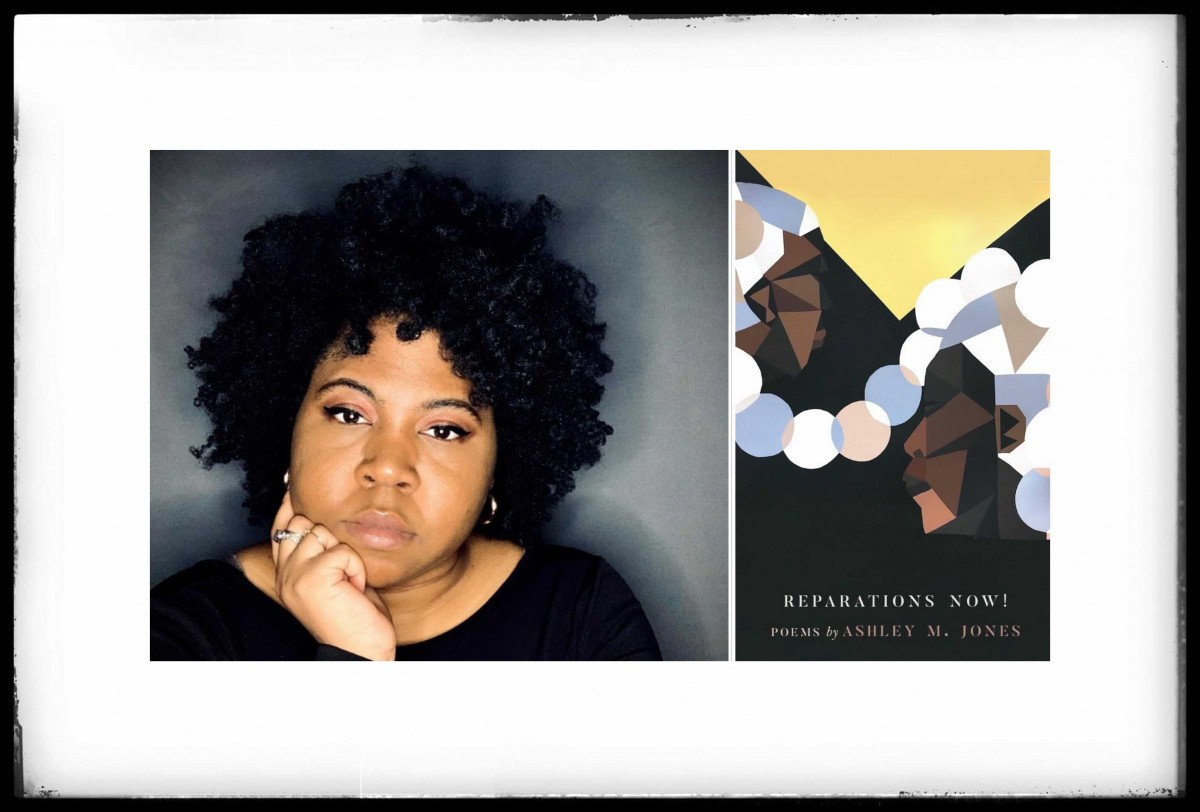Recovery from addiction is possible. For help, please call the free and confidential treatment referral hotline (1-800-662-HELP) or visit findtreatment.gov.
Journalists hold a lot of power in the communities they report, and the choices they make in their reporting can reinforce the stigma that’s already present – whether journalists mean to or not.
Reporting on addiction is a topic that needs to be handled with care, ensuring the media is not making it harder for those who use drugs or are in treatment or recovery to access the services they need. This is a conversation we have a lot at 100 Days in Appalachia, and sparked us to work alongside the Opioid Policy Institute to create the collaborative project Reporting on Addiction – providing free resources and training to improve the way the media covers this area. You can learn more about that here.
Caity Coyne is a health reporter for The Charleston Gazette-Mail in Charleston, West Virginia, and is among the journalists who consciously works to break the cycle of addiction stigma through her work. A native to California, Coyne moved to the mountain state to attend West Virginia University and has called it home ever since.
Since taking over the health beat at the Charleston Gazette-Mail, much of Coyne’s time is spent reporting on Charleston’s ongoing drug crisis. From covering syringe access and HIV outbreaks in West Virginia to treatment and recovery programs, humanizing people who are experiencing this disease while giving her community access to vital information continues to be her priority.
Coyne spoke with 100 Days’ Editorial Assistant Gabriella Brown about reporting on the health beat and its challenges.
This interview has been lightly edited for length and clarity.
Gariella Brown: Why or how has reporting on addiction and recovery become so important to you personally?
Caity Coyne: I’m originally from California. I’m not from West Virginia, and something that you hear a lot around here is no matter how old you are or where you live, you’ve probably known someone that’s been impacted by the drug epidemic or the overdose epidemic, and that’s certainly true in other places, too. I’ve had those instances in my family, and they weren’t things that I really realized the impact of until I started doing this work. They’re not things that I share a lot.
My mom [struggled with a substance use disorder] before I was born, and it didn’t mean anything to me growing up because I was not an active part of it. I think of some of the challenges that we had and through the lens of understanding that, I wonder how different my life would have been if I was able to know the things that I do now and how wide these things really press on people. They last in your life a long time even if you’re not in active addiction anymore. It’s still something that you struggle with. I wouldn’t know that if I didn’t talk to people who are in those situations, so it’s been eye opening for me in that way — kind of this circle back to me understanding my childhood in a very personal way that I don’t think I would be able to anywhere else.
But also, as a reporter, I like to think – if you’re doing it well at least – you form connections with the people that you’re interviewing and writing about. It might not always be personal connections, like we’re going to meet up for birthday parties and stuff like that, but I think it’s really hard to do this work and not be emotionally impacted by the people that you’re talking with and take that as a part of you. I mean, these people trust you enough to share some of the hardest days of their lives with you.You have to give them something back and that’s part of being a human being.
After doing this for the last three or four years now, it’s impossible to separate myself from the people that I’m covering, and I don’t see that as being unethical. We talk a lot about separating ourselves from our subjects in journalism, but to be a good journalist, sometimes you have to lend that empathy out and you have to kind of struggle with that. I think that makes me a better reporter, not a questionable one. It gives heart to your stories in a way that other reporting doesn’t.
GB: The community that you cover has been facing an addiction and a homelessness crisis for years. While there are people who are working to help make a difference and help those people who need access to treatment and resources, there’s still a lot of stigma present in the community. How does that stigma affect your reporting or the stories that you choose to tell?
CC: When you have stigma in a community, it’s like this blanket over everything, and it can be inches thick, it can be feet thick. And it makes it so people can’t access, not just the services that they need, but the information that they need because stigma will overpower accurate information.
When you have people that go out and then maybe not put an empathetic foot forward and instead they are reporting in a criminalistic way — going off the assumption that the people that are using drugs are criminals [or] are more likely to be criminals than not, even when we know that’s not true. Populations of all kinds use drugs. Rich people are addicted to tons of drugs and don’t get criminalized. Not that we should criminalize them, but there’s definitely a class separation [or] a class divide there.
So, when you have a population that tends to already be marginalized – they don’t have a lot of money, they don’t have a lot of mobility resources or the ability to lift themselves up or relocate the way that I do or other people do – when that reporting focuses on the criminalization, you have a whole population of people that are afraid to talk about those issues now and afraid to say I’m being mistreated in this way by a system that could change because they’ve never seen that change before. When they have opened up in the past, it’s been used against them and weaponized. You’ll see reports that come out about a homelessness encampment that’s being broken up, and maybe the focus of that story should be that people don’t have another place to go and the place here has resources to give them, but isn’t because of x, y, z factor. More often than not, those factors are stigma. You get these really reactionary responses to people that are in pain and it’s almost never helpful. Stigma is the starting point of a losing battle.
GB: It’s also important to recognize the reality of the industry as well. What barriers have you found exist in newsrooms or in the news industry in general that may lead to harmful reporting?
CC: One thing is definitely a lack of experience in newsrooms. I’m not talking young reporter versus old reporter. Just think of your general newsroom makeup in America. You probably have a lot of men – a lot of white men specifically – and you probably don’t have a lot of people who have experience with addiction.
You probably have a lot of drinkers and a lot of people who smoke cigarettes and those are definitely addictions, but it’s not [looked at as] the same experience that can be applied to someone who’s used drugs long term. Those are more socially acceptable fallacies or addictions. You don’t have a lot of people that have used heroin, for example, and know what it’s like to try and navigate the recovery process that is not made for you and that was made by people who have never been in your shoes. So lack of experience is a big thing.
Part of the solution to that is definitely diversifying newsrooms in a lot of ways, perhaps gender and race but life experiences as well, and journalism can kind of put up high walls around itself. I think that the conversation that’s ongoing in the media landscape is what is your line of “too close to the subject.” But what you’ll find is the reporters that do have that experience and then they brought it to reporting, their reporting is just bar none to the other reporters like me that are trying to do it because they get this on such a basic level. People can explain to me what addiction is like time and time again – and it is different for everyone. but I’m never going to know. I smoke cigarettes, that’s the closest I’m going to get. I’m never going to know what it’s like trying to navigate a system with my life on the line. I’m happy to say that for myself, but it does limit my reporting in a way.
Another thing is journalism is a hard industry. We have limited time and limited resources to do the reporting that we want to do. So it’s very rare, I think, that you have a reporter who has the resources and ability to give as much time to these stories as they deserve. That’s an industry wide problem on a lot of different fronts. And TV news has different challenges than print news, their deadlines are tighter, they have to have a lot of visuals, and it’s incredibly hard to get visuals in these types of stories that are appropriate and empathetic and aren’t going out of the way to get that shock. Those are just some of the things.
Sometimes I think journalists can get really stuck in their ways, especially if you have newsrooms that seem older and might not be the easiest to approach with changes to the way we’ve been doing something.
GB: Are there recommendations that you have for journalists when they’re reporting on addiction to not only inform their audiences, but also increase trust?
CC: I think a very basic one is trust your sources. So, do what you have to do to vet your sources, make sure that you’re not being twisted a tale, but when someone that’s in that position and again, especially if you’re like me and you don’t have the experience to relate, you need to trust what they’re telling you. If someone tells you their personal experience with addiction, even if it goes against what you’ve heard from experts and everyone else, remember that it probably is their experience and deserves to be told.
There’s a lot of opinions, I think, in the recovery and harm reduction communities on what is the best route for someone who has an active addiction – is it abstinence, is it a 12-step program, is it [medication]? There’s a lot of room for those arguments to have their own space. So I think the biggest thing is just remember that there is nuance to each individual story.
Remember who’s at fault and make sure that you’re holding the right people accountable. Populations and communities don’t benefit from seeing a mug shot of two people who may have been using drugs, but never hurting anyone. Who benefits from that story? People will benefit from the story about how they couldn’t afford to get into a recovery unit or how they don’t qualify for workers assistance because they use drugs.
We need to accept today that drug use is a part of our communities. We accept it in certain populations, but not in others, and we give help to certain populations and not others. If we want to see real change, we have to address this empathetically and with equal opportunity for everyone who wants help to get it.
Recovery from addiction is possible. For help, please call the free and confidential treatment referral hotline (1-800-662-HELP) or visit findtreatment.gov.



